NAWAZUDDIN SIDDIQUI DISCUSSES HIS FIRST UK FILM SHOOT AND WHY THE SHOW MUST GO ON
by ASJAD NAZIR
IT IS the first-time acclaimed actor Nawazuddin Siddiqui is visiting London, but he isn’t able to enjoy any attractions the city has to offer.
He has been shooting for Bollywood thriller Sangeen under strict Covid-19 restrictions, so has had a daily routine of shuttling between a hotel and the film set in a bio-bubble. The acclaimed actor will add to his impressive body of work with the unique film, which only has two main protagonists and is one that looks set to expand his cinematic horizons further.
Nawazuddin Siddiqui was in good spirits, when Eastern Eye caught up with him via Zoom, to discuss his new film, acting, pressures of being at the top, inspiration during lockdown and the art of resetting to zero.
How do you look back on your amazing acting journey?
It has been a great journey so far. There were ups and downs, but that happens because you have chosen this profession. But overall, it has been really interesting.
Eastern Eye ranked your performance in the film Serious Men as the best by a male Bollywood star in 2020. How much did you enjoy playing that character?
First of all, thank you very much for the honour. I appreciate it a lot, Asjad! I really enjoyed playing the character and the positive reaction to it was overwhelming. I’m so happy for that.
A massive number of producers want to work with you, but how are you choosing projects?
I focus on the character whenever a project is presented or narrated to me. I look for a challenge in the character that has been written for me, which should be there. I should have a certain amount of fear about taking on that new character and it should be out of my comfort zone. So, choosing a role like that gives me great pleasure. I do focus more on character than the story, I have to admit.
What did you like about your film Sangeen?
It is a very well-written script, which is mostly focused on just two characters. So, it provides a number of interesting challenges for me as an actor. The film is mostly set within one room, with a few outdoor scenes. This premise of just two characters is interesting as well as challenging.
I know you can’t speak much about Sangeen, but what can you tell us about your role?
All I can tell you is that this is a thriller. The thing about a thriller is that if I reveal even a little bit about the character, you will learn about the story and then the joy goes. It’s best I don’t reveal anything as it will spoil the surprise.
What is it like shooting in London in the middle of a raging Covid-19 pandemic and do you feel scared?
I have to admit there is that little bit of fear. There are also difficulties while shooting, but thankfully, the unit is very small, and we are in a bio-bubble. We are all getting tested regularly for Covid and following all the strict guidelines. And we don’t have any connection with the outside world. The very strict bubble means there are difficulties, but we are carrying on because as they say, ‘the show must go on’. What I love most about you as an actor is that it is impossible to tell if you are going to play a good, bad or a grey character.
What is your character like in Sangeen?
Like I said to you before, Asjad, I like those types of unpredictable characters that have good and bad elements to them. They need to have that human element. It’s like if you pick any person out there, they will have good and bad qualities. That completes a human being. I am yet to see a person who is completely good or completely bad. When you get closer to people, you realise they have good and bad qualities. Even a bad person will have good qualities and a good person will have some bad elements. That is closer to reality. I like those types of characters most and there are elements of that in this film.
I also love that your characters have very unique personalities. How are you able to do this?
Those are difficulties about acting I really enjoy. The process of creating and exploring new characters is a challenge. I have lived among such diverse sets of people that I have been able to gain inspiration from there. When you are among so many different sets of people you do remember and get inspired by them. I often imbibe qualities of people I have met or been around. That is very helpful to the process. When I’m doing a film, I do draw upon past experiences, which includes the people I have met and qualities they have. That helps to create a unique character.
Many regard you as perhaps the best actor working in Bollywood today. Does that put pressure on you?
If anyone is saying that about me, then first of all, I would like to say that I am very thankful. But I don’t take any pressure at all because it’s not something I think about. When I start thinking about that, the pressure will weigh me down. I just want to remain focused on the process. I like remaining in the process of creating characters. I try to get it out of my mind that people may be appreciating me and my work or criticising me. I don’t let these thoughts into my mind.
How are you finding London in lockdown?
(Laughs) I feel like I haven’t even come to London, even though I have been here for a few weeks. My routine is just going to the set for shooting and back to the hotel. That is life right now. Hopefully, if lockdown eases, I will be able to see how much ever is allowed of the city.
What do you like about London?
This is the first time I have come here, so I’ve not really been able to experience it. (Laughs) And I’ve come in such a situation when there is a pandemic. Of course, it’s a great city, but it’s difficult for me to pinpoint what are the best aspects of it. I will only be able to tell you what is great about London when I can finally go outside. But London will always remain London.
A lot of people want to work with you, but who would you want to work with?
Quite frankly speaking, I don’t have a wish list. Whoever works with me I like them and enjoy working with them because we always create a good and positive environment. And you start enjoying that process of working with them. I don’t feel like I’ve had the choice of choosing who I want to work with yet. But of course, I just want to work with good people.
You have delivered some incredible performances, but do you have a personal favourite?
I don’t watch much of my own work, so am unable to analyse it. But if I have to choose, I enjoyed Photograph, directed by Ritesh Batra. I love characters like that, which are dry and devoid of much drama in their life. I really love characters like that, but they don’t click with audiences unfortunately. That’s a big conflict actually. (Laughs) The ones I love, audiences don’t like.
A lot of people including celebrities have been learning new skills during lockdown. Have you learned anything new?
Honestly, during lockdown I haven’t learned any new skills, but what I did do is watch a lot of movies, including work by my favourite actors. I’m an actor and will watch things that are related to my craft. Acting is my life, so I do whatever is connected to that, even if it is watching films. I think I must have watched over 200 films during lockdown. I’ve watched a lot of European cinema and Hollywood films. It has been a very fascinating and an interesting time to be able to do that.
You have played some really intense characters, but does it affect you in real life?
Some of the characters are really complicated, so they will impact you in some way because you put so much into them. You are not a computer that you can just switch off. You are human after all, so some things will impact you. For example, the film Manto impacted me a lot. Raman Raghav 2.0 impacted me a lot. But of course, when a film finishes you give yourself time to disconnect from that impact and return to a more neutral state, so that you can reset to zero and start a new character.
You are now working with your brother Shamas Nawab Siddiqui for the first time, who is directing your film Bole Chudiyan. How has that been?
Yes, I am working with my brother. I’m enjoying it a lot and there are 10 days left to shoot on his film. When lockdown ends fully, we can complete the film. The film is in a very commercial zone. It’s a very light film with romance and comedy.
Would you like to give a message to your fans?
The simple message I want to give is look after your health. Please follow all the guidelines. Be healthy, be happy and may happiness surround you always. I just want you to be happy, especially in the condition we’re living in right now.
Finally, we are living in difficult times where the world has changed, so what inspires you today?
With the condition of the world as it is because of the pandemic, I am getting inspired most by those who are selflessly supporting others. And many of them are doing it without thinking about their own safety, especially frontline workers. They are inspiring me the most. They are feeding the hungry, looking after the Covid-19 patients and making sure we remain safe. The doctors, medical workers, nurses and all of those who are helping others during this difficult time. I just have so much love and respect for them.





 Lunchbox is a powerful one-woman show that tackles themes of identity, race, bullying and belongingInstagram/ lubnakerr
Lunchbox is a powerful one-woman show that tackles themes of identity, race, bullying and belongingInstagram/ lubnakerr She says, ''do not assume you know what is going on in people’s lives behind closed doors''Instagram/ lubnakerr
She says, ''do not assume you know what is going on in people’s lives behind closed doors''Instagram/ lubnakerr








 He says "immigrants are the lifeblood of this country"Instagram/ itsmetawseef
He says "immigrants are the lifeblood of this country"Instagram/ itsmetawseef This book is, in a way, a love letter to how they raised meInstagram/ itsmetawseef
This book is, in a way, a love letter to how they raised meInstagram/ itsmetawseef
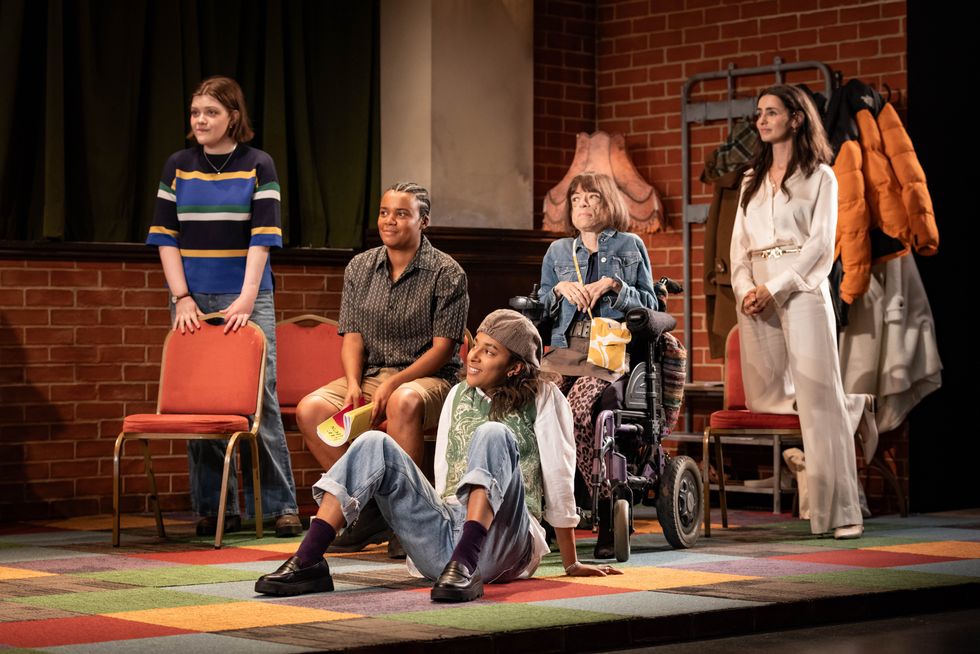 The crew of The Ministry of Lesbian Affairs
The crew of The Ministry of Lesbian Affairs
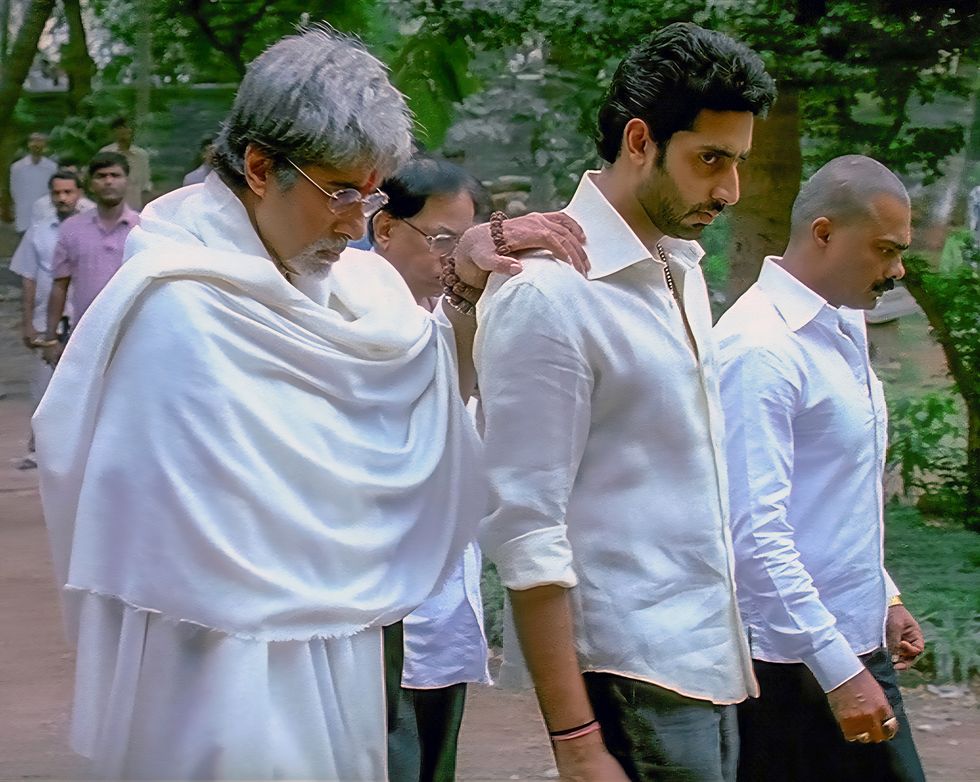 A still from Sarkar, inspired by 'The Godfather' and rooted in Indian politicsIndia Glitz
A still from Sarkar, inspired by 'The Godfather' and rooted in Indian politicsIndia Glitz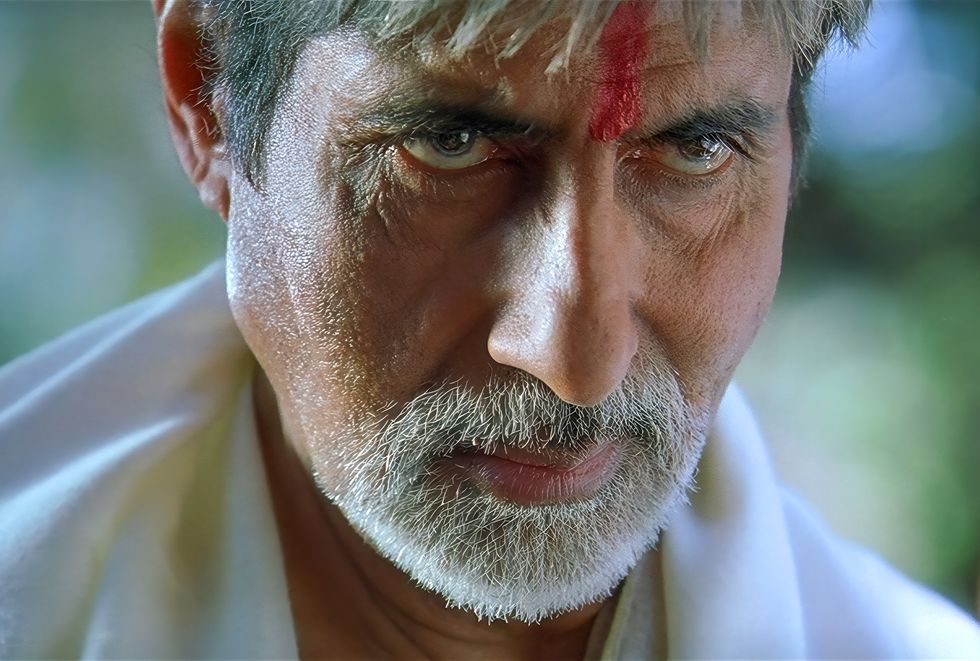 Sarkar became a landmark gangster film in Indian cinemaIndia Glitz
Sarkar became a landmark gangster film in Indian cinemaIndia Glitz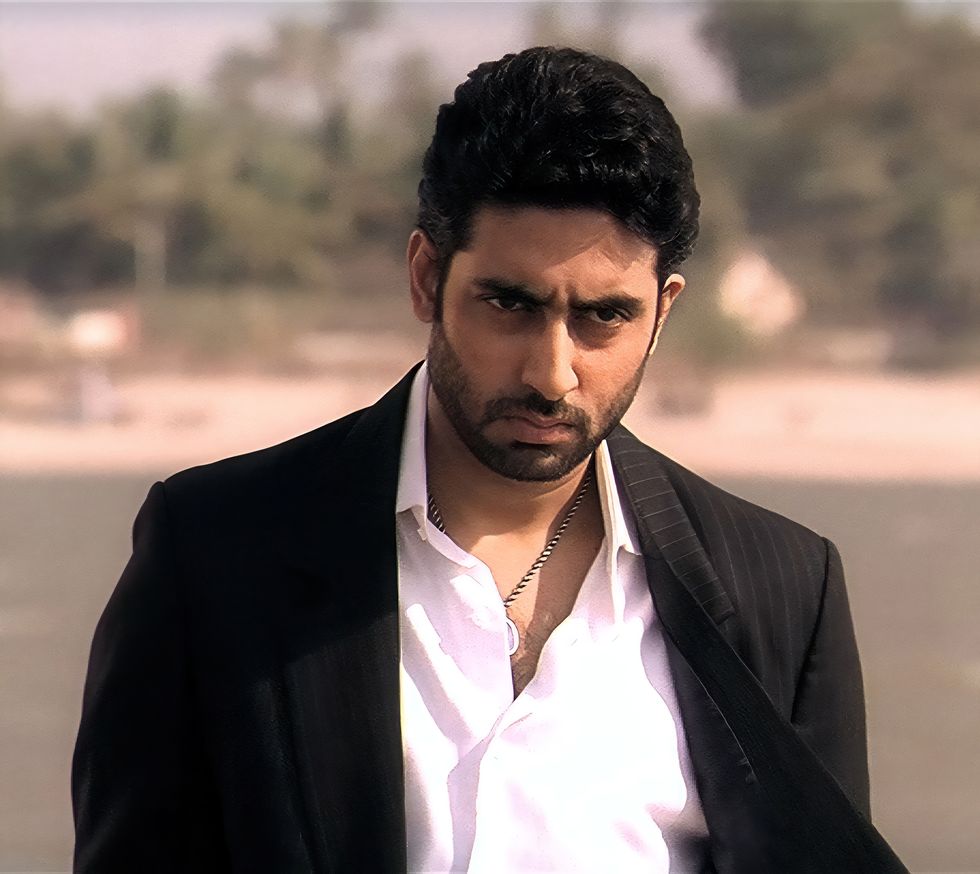 The film introduced a uniquely Indian take on the mafia genreRotten Tomatoes
The film introduced a uniquely Indian take on the mafia genreRotten Tomatoes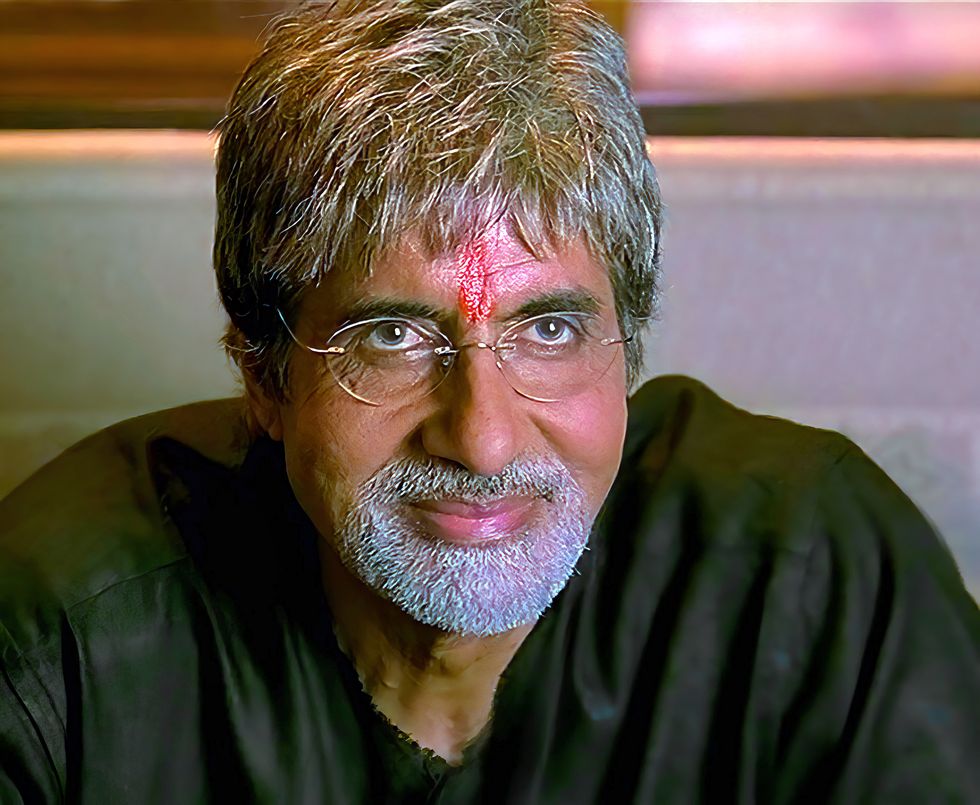 Set in Mumbai, Sarkar portrayed the dark world of parallel justiceRotten Tomatoes
Set in Mumbai, Sarkar portrayed the dark world of parallel justiceRotten Tomatoes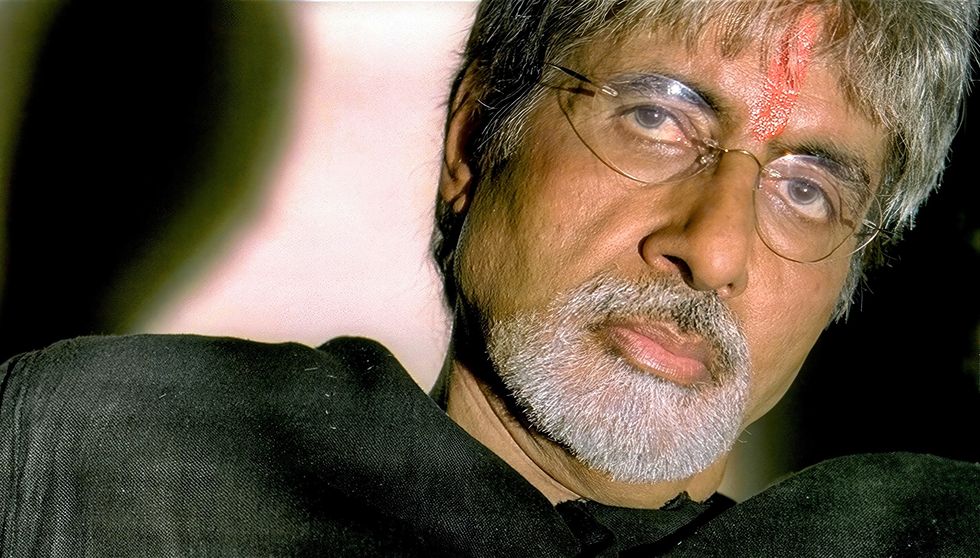 Ram Gopal Varma’s Sarkar marked 20 years of influence and acclaimIMDb
Ram Gopal Varma’s Sarkar marked 20 years of influence and acclaimIMDb
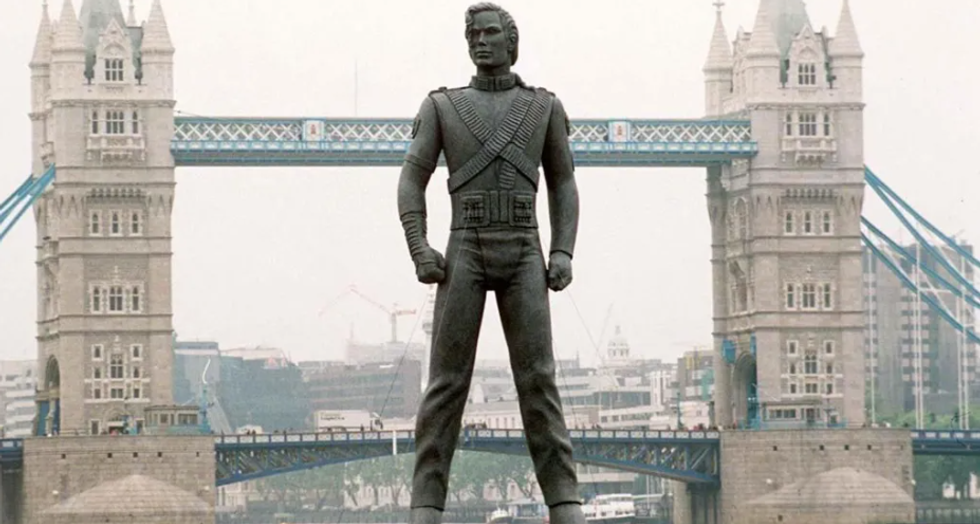 The statues were the product of a transatlantic effortGetty Iamges
The statues were the product of a transatlantic effortGetty Iamges